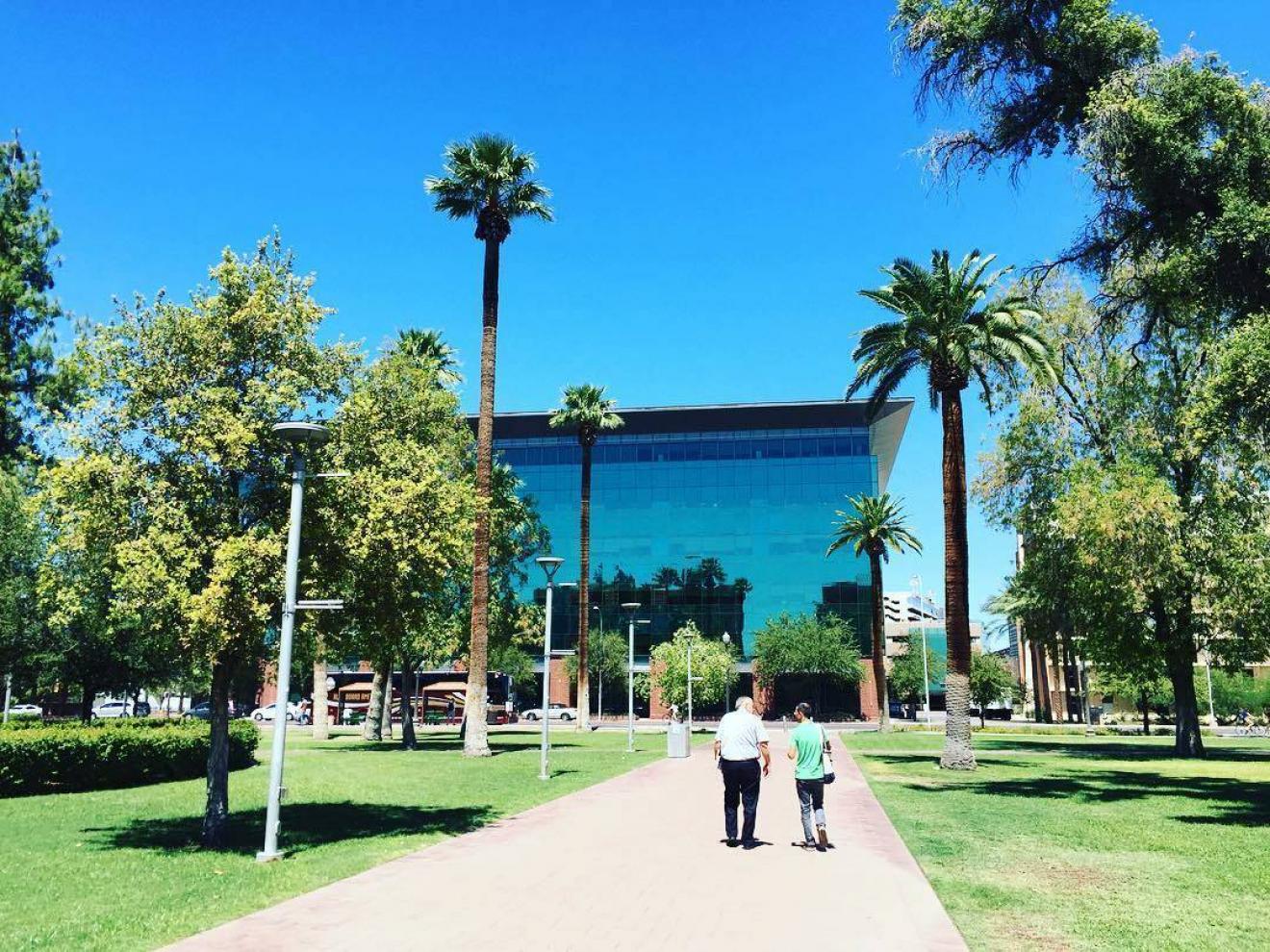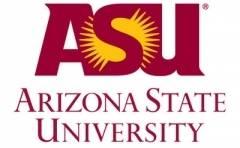
Read more about our ranking methodology.
Tempe, AZ 85287
* These statistics utilize the most recently released data from IPEDS (Integrated Postsecondary Education Data System)
Sources for school statistics and data include U.S. Department of Education's National Center for Education Statistics and the Integrated Postsecondary Education Data System. Data may vary depending on school and academic year.


- Law (LAW) - Professional schools
- Clinical Psychology (CLPSY) - PhD Doctoral programs
- Counseling Psychology (COPSY) - PhD Doctoral programs
- Professional Psychology (IPSY) - Predoctoral internship programs
- Speech-Language Pathology (SLP) - Graduate degree programs
- Clinical doctoral program in Audiology
Source data obtained from U.S. Department of Education's Office of Post-secondary Education (OPE)

What letter grade would you give your school on how well it prepares students for a career in the real world?
Based on 17 ReviewsWhat letter grade would you give the students/culture at your school?
Based on 19 ReviewsWhat letter grade would you give the facilities at your school.
Based on 17 ReviewsWhat overall letter grade would you give the activities/groups at your school?
Based on 17 ReviewsNotable past ASU alumni include James Harden – NBA guard for the Houston Rockets; NBA All-Star; '11–'12 Sixth Man of the Year; Olympic gold medalist; Jimmy Kimmel – actor, comedian, and TV host; Kate Spade – fashion designer, business owner; John Seibel – host of ESPNEWS and SportsNation on ESPN Radio; and David Spade – comedian and actor.
ASU is spread across campuses in the Phoenix Metropolitan Area; however, unlike most multi-campus institutions, ASU describes itself as "one university in many places." ASU's Tempe campus is located in urban downtown Tempe, Arizona, about eight miles east of downtown Phoenix. The West campus sits on 250 acres in a suburban area of northwest Phoenix. The 600-acre Polytechnic campus is located 33 miles southeast of downtown Phoenix and sits on the former Williams Air Force Base. The newest of ASU's four campuses, the Downtown Phoenix campus was established in 2006 on the north side of Downtown Phoenix. The campus has an urban design, with several large modern academic buildings intermingled with commercial and retail office buildings.
ASU is a top-rated provider of online degrees and certificates and has been offering online degree programs since 2006-2007 through ASU Online. Currently, ASU offers more than 70 undergraduate and graduate degrees completely online. Every class is recorded and archived so students can access lecture material whenever they choose.
ASU Sun Devils compete in 20 varsity sports in the Pac-12 conference; the school’s NCAA Division 1-A program competes in 9. They are best known for high performances in men’s, women’s and co-ed archery and badminton; women’s golf, swimming and diving; baseball and football. ASU has won 23 national collegiate team championships in the following sports: baseball (5), men's golf (2), women's golf (7), men's gymnastics (1), softball (2), men's indoor track (1), women's indoor track (2), men's outdoor track (1), women's outdoor track (1), and wrestling (1).
ASU offers over 250 majors to undergraduate students, and more than 100 graduate programs. ASU's School of Sustainability, which began enrolling students in 2008, is the first school in the United States dedicated to exploring the principles of sustainability, offering undergraduate and graduate degrees in the subject. The 2016 U.S. News & World Report ranked ASU 62nd among public universities. The student-faculty ratio at ASU’s main campus is 22:1 with 40.7 percent of its classes with fewer than 20 students. ASU has a 43 percent 4-year graduation rate. Sports and media studies, food industry management, tourism — these are just a few of the degrees offered at Arizona State University’s W.P. Carey School of Business. Others include more traditional programs like management, marketing, and finance. Whichever major you choose, you’ll be encouraged to rethink the nature of business, engage the world, and create a better future on a global scale. That’s what attracts more than 8,300 undergraduate students and 1,500 graduate students to the business school, making it one of the nation’s largest. But if you think a large student body means students feel like a guppy in a really big shark tank, think again. The school creates a close-knit community through small classes, team-based learning, and individualized attention. Remember that one time at Carey camp? All W. P. Carey students can say “yes” to that one. Everyone’s program starts at Carey camp where first-year students get together for an outdoor adventure in the cool pines of northern Arizona.
